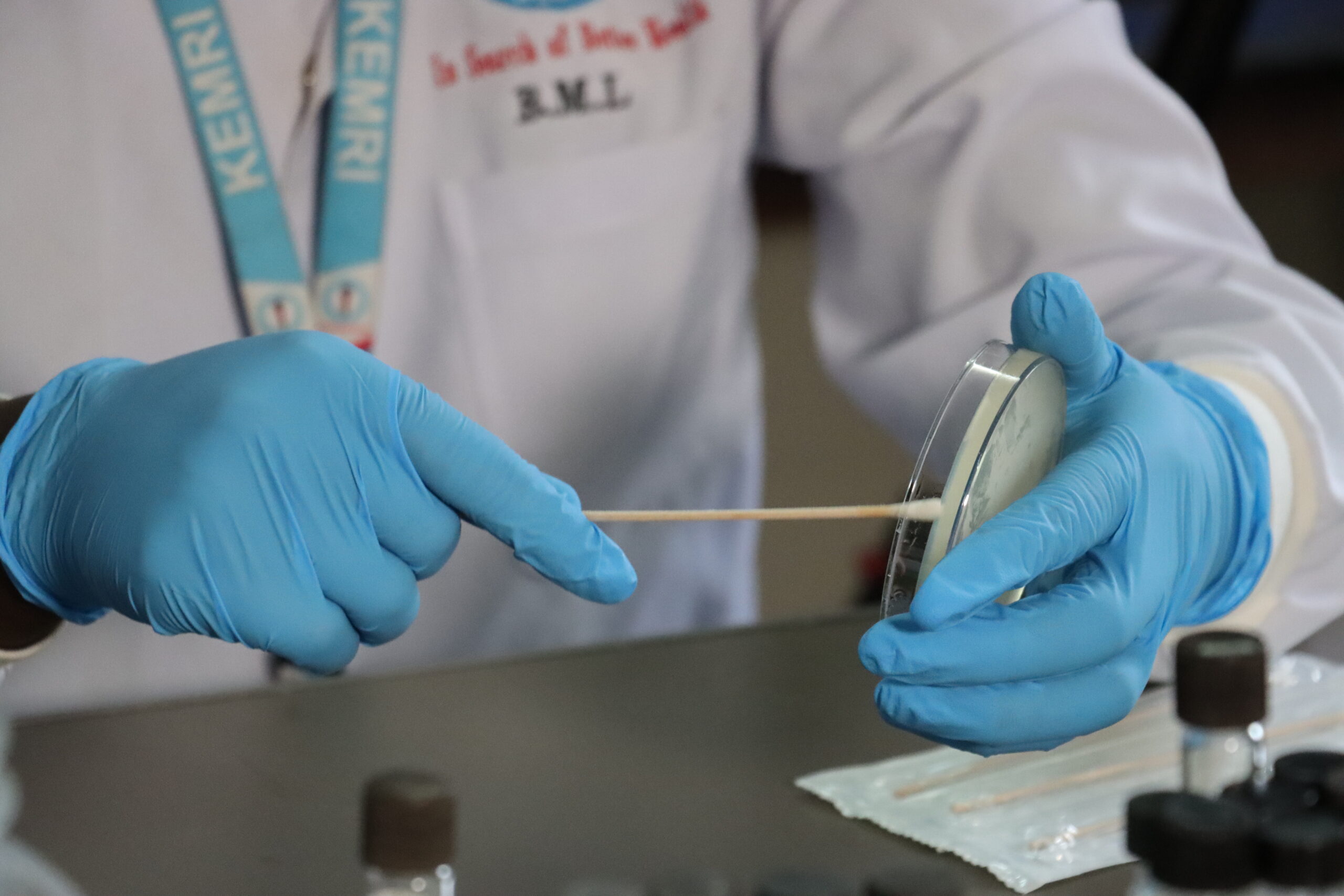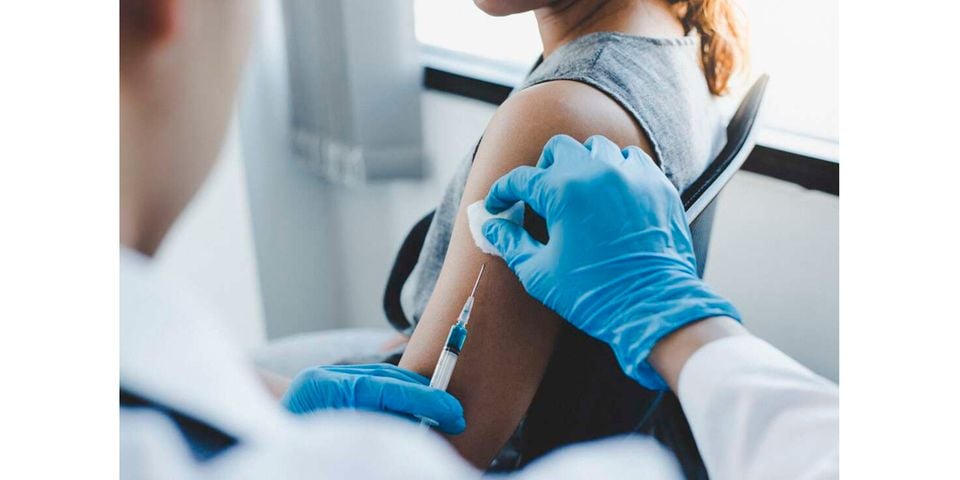
Office of the First Lady, KEMRI, KEMRI, and The University of Liverpool partner to improve clean air and health through cooking.
April 6, 2023
Young Scientists Bag LSTM Awards
July 17, 2023Single-Dose HPV Vaccine Highly Efficacious over three years, New Study Finds

Photo| Courtesy
Speaking at the 35th International Papillomavirus Conference in Washington, D.C., researchers from the Kenya Medical Research Institute (KEMRI)and Massachusetts General Hospital (MGH) today announced new results from the KEN SHE study conducted in Kenya that show that a single-dose of HPV vaccine is highly efficacious in preventing persistent infections of the virus over three years. The randomized, multicenter, double-blind, controlled trial included 2,275 women between the ages of 15-20, who were randomly assigned to receive either a single dose of the bivalent or nonavalent HPV vaccine or the control vaccine.
Over the 36-month study period, participants were regularly tested for HPV DNA, with cervical and vaginal swabs collected at regular intervals. The results showed that the single dose of both the bivalent and nonavalent HPV vaccines were highly efficacious, with a vaccine efficacy of 98%. Additionally, the nonavalent vaccine had a vaccine efficacy of 96% for the nine types of HPV it targets.
The study’s findings have significant implications for the prevention of cervical cancer, which is caused by persistent HPV infections. A single-dose vaccination schedule could simplify implementation and decrease costs associated with multi-dose vaccination schedules, making it a more feasible option for low-resource settings. At present, only 33% of targeted population of girls are receiving the first HPV dose and 16% returning for the 2nd dose in Kenya. These low first
dose and even lower second dose uptake rates are duplicated throughout Africa. Unfortunately, of the estimated 342,000 cervical cancer deaths in 2020, more than 90% occurred in low- and middle-income countries. A single-dose vaccination schedule could, therefore, go a long way in addressing this deadly inequity.
“We believe that these findings could have significant implications for vaccination programs in low-resource settings, where the burden of cervical cancer is highest,” said lead KEMRI lead investigator Dr. Nelly Mugo.
“This study provides important evidence that a single dose of HPV vaccine can be highly effective in preventing persistent infections, and ultimately, cervical cancer,” said Lead Investigator Dr. Ruanne Barnabas of the Massachusetts General Hospital. Of the estimated 342,000 cervical cancer deaths in 2020, more than 90% occurred in low- and
middle-income countries. A single-dose vaccination schedule could go a long way in addressing this deadly inequity.
“Following the WHO recommendation in support of a one-dose regimen for HPV vaccine could help make the vaccine more accessible to women and girls around the world by lowering costs, alleviating pressure on supply, and making the vaccine easier to deliver,” said Peter Dull, Deputy Director for Clinical Vaccine Development at the Bill & Melinda Gates Foundation.
Since December 2022, eight countries have announced they will switch to a one-dose HPV schedule—which has traditionally required 2-3 doses—following updated guidance from the World Health Organization (WHO). Part of the hesitancy has been regarding the durability of the single-dose HPV vaccine. Dr. Maricianah Onono, the KENSHE country director notes that, “ From our initial 18-month data, there have been concerns raised regarding the durability of the single dose HPV vaccine. This 36-month data helps to allay this anxiety. We encourage health ministers particularly those in low and middle income countries, to consider the findings of the KEN SHE Study and to work towards increasing access to the HPV vaccine, including the single dose option where appropriate.”
Together, the researchers emphasize that the ultimate goal is to prevent cervical cancer and improve women’s health, and they believe that the HPV vaccine, whether administered as a single dose or the full two-dose schedule, can be an important tool in achieving that goal. Speaking regarding the next steps for Kenya and indeed other African countries, the KEMRI Director General KEMRI Prof Elijah Songok noted that. “The KEN SHE Study’s findings have potential to revolutionize HPV vaccination programs around the world. The evidence that a single dose of both the bivalent and nonavalent HPV vaccines are highly efficacious in preventing persistent infections is a breakthrough.
We hope that the success of this study will encourage further investment in cervical cancer prevention and vaccination programs, and ultimately lead to a reduction in the burden of this devastating disease.”
The study was funded by the Bill and Melinda Gates Foundation and conducted by KEMRI in collaboration with the Kenyan Ministry of Health.

